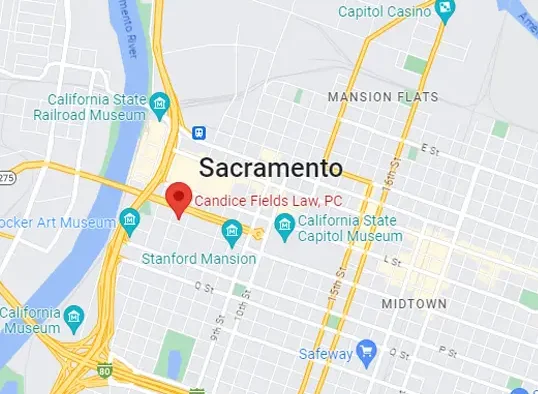What is Wire Fraud?

Wire fraud is a serious criminal offense with severe consequences for those accused. As a criminal defense attorney, understanding the intricacies of wire fraud and how to defend against such charges is crucial. At Candice Fields Law, PC, we are dedicated to providing our clients with the knowledge and support they need to navigate these complex cases.
What is Wire Fraud?
Wire fraud involves using electronic communication or technology to defraud someone of money or property. This can include phone calls, emails, text messages, faxes, or any other form of electronic communication. The key element of wire fraud is the intent to deceive or defraud.
Wire fraud is defined under 18 U.S.C. § 1343 and carries significant penalties, including imprisonment, fines, and restitution. Electronic communication broadens the scope of this crime, making it a federal offense that can be prosecuted aggressively.
Common Examples of Wire Fraud
Wire fraud can take many forms, but some of the most common examples include:
- Phishing Scams: These involve fraudulent emails or messages designed to trick recipients into providing personal information, such as passwords or credit card numbers.
- Investment Fraud: Promising high returns on investments without intention to deliver on those promises.
- Online Auction Fraud: Misrepresenting items for sale on online auction sites to deceive buyers.
- Romance Scams: Creating fake profiles on dating sites to deceive individuals into sending money or personal information.
Signs You Are Being Investigated for Wire Fraud

Being under investigation for wire fraud can be a stressful and unsettling experience. At Candice Fields Law, PC, we understand the anxiety and uncertainty of such an investigation. Recognizing the signs that you may be under scrutiny can help you take proactive steps to protect your rights and interests.
Unusual Activity in Your Accounts
One of the first signs you might be under investigation for wire fraud is unusual activity in your financial accounts. This can include unexpected freezes or holds on your accounts, unexplained withdrawals or deposits, and increased scrutiny from your bank. These actions can result from law enforcement agencies monitoring your financial transactions.
Contact from Law Enforcement
If you receive contact from law enforcement officers, such as FBI agents or investigators from other federal agencies, it may indicate that you are under investigation for wire fraud. These contacts can come in various forms, including:
- Phone Calls: Investigators may call you to ask questions or request an interview.
- Visits to Your Home or Workplace: Agents may appear unannounced to gather information or ask for documentation.
- Subpoenas: Receiving a subpoena for documents, records, or testimony clearly indicates that you are part of an ongoing investigation.
Subpoenas and Document Requests
Receiving a subpoena or formal request for documents related to your business or personal finances can strongly indicate that you are being investigated. These requests can be broad and may require you to provide significant information, including emails, financial statements, contracts, and other relevant documents.
Changes in Your Business Relationships
Another sign of an ongoing investigation is a sudden change in your business relationships. This can include:
- Vendors or Clients Being Contacted: Investigators may contact your vendors, clients, or business partners seeking information about your activities.
- Termination of Contracts: Business partners may terminate contracts or relationships abruptly, often without explanation.
- Increased Audits: Your business may face increased scrutiny from regulatory agencies, including audits or inspections.
Surveillance and Monitoring
If you notice unusual surveillance or monitoring activities, it could be a sign that you are under investigation. This can include:
- Physical Surveillance: Observing unfamiliar vehicles or individuals near your home or workplace.
- Electronic Surveillance: Unusual activity on your phone or computer, such as increased spam, unusual messages, or indications that your communications are being intercepted.
Advice from Legal Counsel
If your attorney has advised that you are under investigation, it is crucial to take their advice seriously. Legal counsel can provide insights and guidance based on their interactions with law enforcement and their understanding of the legal landscape.
What to Do If You Are Being Investigated
If you suspect that you are under investigation for wire fraud, it is essential to take the following steps:
- Consult with a Wire Fraud Defense Attorney: Contact an experienced criminal defense attorney immediately. At Candice Fields Law, PC, we can help you understand your rights and develop a strategy to protect your interests.
- Do Not Speak to Investigators Without Legal Representation: It is vital to avoid speaking to law enforcement officers without your attorney present. Anything you say can be used against you in the investigation.
- Preserve Evidence: Ensure that you preserve all relevant documents and communications. Do not destroy or alter any potential evidence.
- Limit Your Communications: Be cautious about discussing the investigation with others. Limit your communications to trusted individuals and your legal counsel.
Consequences of a Wire Fraud Conviction
A wire fraud conviction can have severe and far-reaching consequences, affecting various aspects of your life. At Candice Fields Law, PC, we understand the gravity of these charges and the importance of mounting a strong defense. Here, we outline the potential consequences of a wire fraud conviction to help you comprehend the stakes involved.
Criminal Penalties
The criminal penalties for wire fraud can be severe, often including imprisonment and substantial fines.
- Imprisonment: A conviction for wire fraud can result in a federal prison sentence of up to 20 years. If the fraud involved a financial institution or occurred during a major disaster or emergency, the maximum sentence can be increased to 30 years.
- Fines: Convicted individuals may face significant fines. These fines can reach up to $250,000 for individuals and $500,000 for organizations or twice the gross gain or loss resulting from the fraud, whichever is greater.
- Restitution: Courts often order convicted individuals to pay restitution to the victims of the fraud. This means repaying the amount of money that was fraudulently obtained, which can add up to substantial sums.
Probation and Supervised Release
In some cases, individuals convicted of wire fraud may be sentenced to probation or supervised release instead of or in addition to imprisonment. Conditions of probation can include regular check-ins with a probation officer, maintaining employment, and abstaining from criminal activity. Violating the terms of probation can result in additional penalties, including imprisonment.
Professional and Personal Consequences
A wire fraud conviction can also have devastating effects on your professional and personal life:
- Loss of Employment: A conviction can lead to the immediate loss of your job, especially if your employment involves handling money or sensitive information.
- Difficulty Finding Future Employment: A criminal record for wire fraud can make it challenging to secure future employment, as many employers conduct background checks and may be hesitant to hire someone with a fraud conviction.
- Professional Licensing: If you hold a professional license, such as those required for lawyers, doctors, accountants, or financial advisors, a conviction for wire fraud can result in the suspension or revocation of your license.
- Damage to Reputation: The stigma of a fraud conviction can damage your reputation within your community, affecting personal relationships and social standing.
Financial Consequences
Beyond fines and restitution, a wire fraud conviction can have other financial repercussions:
- Asset Forfeiture: The government may seize assets, including bank accounts, real estate, and other property, believed to be connected to the fraud.
- Civil Liability: Victims of wire fraud may pursue civil lawsuits to recover damages, leading to additional financial burdens.
- Credit Damage: A fraud conviction can negatively impact your credit score, making it difficult to secure loans, mortgages, or other forms of credit.
Immigration Consequences
For non-citizens, a wire fraud conviction can have serious immigration consequences:
- Deportation: A conviction for wire fraud, particularly if classified as an aggravated felony or crime of moral turpitude, can result in deportation or removal from the United States.
- Inadmissibility: Non-citizens convicted of wire fraud may be deemed inadmissible, meaning they cannot re-enter the United States if they leave or cannot adjust their immigration status.
Social and Psychological Consequences
The impact of a wire fraud conviction extends beyond tangible penalties:
- Family Strain: The stress and stigma of a conviction can strain relationships with family members and friends.
- Mental Health: The emotional toll of dealing with the legal process and facing the consequences of a conviction can lead to anxiety, depression, and other mental health issues.
Defending Against Wire Fraud Charges
Defending against wire fraud charges requires a thorough understanding of the law and the case's specific details. At Candice Fields Law, PC, we approach each case with a comprehensive strategy tailored to our client's unique circumstances. Here are some key defense strategies:
- Lack of Intent: A crucial defense is demonstrating that the accused did not intend to defraud. If the prosecution cannot prove intent, the charges may not hold.
- Mistaken Identity: In some cases, individuals may be wrongfully accused of wire fraud due to mistaken identity. We work diligently to uncover evidence that supports our client's innocence.
- Insufficient Evidence: Another effective defense is challenging the evidence presented by the prosecution. This can involve scrutinizing the electronic communication and highlighting any inconsistencies or lack of concrete proof.
- Entrapment: If it can be shown that law enforcement induced the accused to commit the crime they would not have otherwise committed, an entrapment defense may be viable.
Why Choose Candice Fields Law, PC?
Facing wire fraud charges can be overwhelming and frightening. We understand the stakes at Candice Fields Law, PC, and are committed to providing our clients with the highest legal representation. Our client-centered approach focuses on open communication, thorough investigation, and aggressive defense strategies.
If you or a loved one is facing wire fraud charges, seeking legal counsel as soon as possible is essential. Contact Candice Fields Law, PC, today for a confidential consultation. We are here to help you understand your rights and options and to fight for the best possible outcome in your case.





